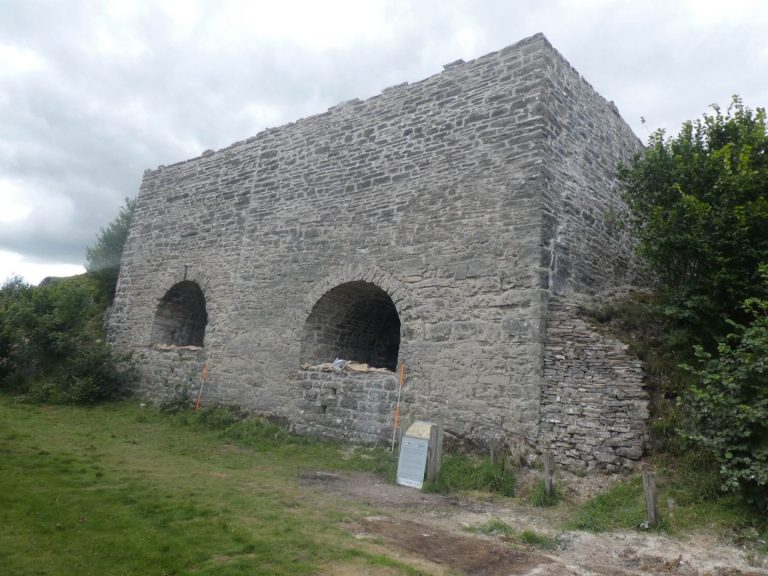Gateley reports “resilient” performance in first half
Professional services group Gateley has hailed a “resilient performance” in its half year results, amidst a challenging market due to macro-economic conditions.
According a trading update ahead of its half year results for the six months ended 31 October 2023 (H1 24), group revenue grew by 7% and is expected to be not less than £81.5m.
Underlying profit before tax, meanwhile, is expected to be not less than £10m, representing growth of 4%.
Rod Waldie, Chief Executive Officer of Gateley, said: “Given the economic conditions during the period, I am pleased with the group’s performance in H1 24 and improving activity levels as the financial year progresses mean that we are carrying good momentum into H2.
“Whilst the macroeconomic and geopolitical outlook remains uncertain, the group continues to benefit from the resilience created by our strategy of investing in a diverse and complementary range of professional services.
“Our balance sheet provides a strong foundation from which to take a long-term view of potential opportunities to further invest in both legal and consultancy services.
“Finally, as always, I would like to thank our clients for their support and our dedicated people for their ongoing hard work, commitment and can-do attitude.”
Leeds gets share in new call centre jobs created by British Gas
Leeds is one of several UK locations chosen by British Gas to increase the number of jobs at its call centres.
The company is hiring over 700 new roles across its network of energy contact centres, helping to boost its existing customer service teams in Leicester, Leeds, Stockport, Edinburgh, and Cardiff as the winter heating season begins. These roles will all be in post by the end of the year with continued hiring taking place in January as part of the company’s aim to move call centre resource to the UK.
Last winter, British Gas experienced an increase in call volume due to the energy crisis and invested £25 million in its customer services operations to meet this demand. Whilst energy prices have come down, the company still expects customers to need support so is continuing to boost its UK teams. The increased staff will also mean longer opening times for British Gas customers of 8am to 6pm on weekdays and 9am to 2pm on Saturday.
British Gas has a £100 million support package in place to help customers who are struggling with energy costs – the largest voluntary support package offered by a UK supplier. Its customer services teams will receive additional training in how to help customers in financial difficultly including directing them to available support.
Chris O’Shea, CEO of Centrica, parent company of British Gas, said: “Although energy prices have come down slightly, many of our customers are still struggling overall with the cost of living and need to speak to us for longer about their energy bills. Strengthening our UK call centre operations will allow us to help more households with expert advice and support during this time.
“I’m extremely proud of how our expert teams support our customers every day – in the past year they’ve helped over 1 million customers who’ve been struggling to afford their bills with additional support such as grants, debt relief and payment plans.”
In addition to hiring UK based call centre staff, British Gas will continue to train apprentices to help accelerate the drive to net zero and to fix boilers and ensure people are heating their homes efficiently over the winter. The company has a strong history of boosting jobs and training in the UK with 3,500 new apprentices to be hired by 2030.
Agricultural machinery specialist picks Swinderby for its UK HQ
Global agricultural machinery specialist Maschio Garpardo has leased premises at the Swinderby Industrial Park near Lincoln for use as its UK HQ.
According to the Lincoln agency of Eddisons – who acted alongside EQT Exeter, who manage Swinderby Industrial Park in the letting deal, Maschio Gaspardo had started its search for premises only this summer.
Swift lease negotiations and completion of the deal, sees new UK operation up and running for launch at its new 20,239 sq ft warehouse & offices premises at the Park this month.
An established brand in the UK already, Maschio Gaspardo has worked successfully for the past 12 years with distributor, OPICO Ltd. A change in growth strategy necessitated an independent UK operation for a more direct relationship with dealer networks.
Maschio Gaspardo UK Managing Director Warren Rivers-Scott said location and size were the key drivers. He said: “While Lincolnshire’s agricultural heritage plays a part, it’s really the area’s logistical reach that attracted us.
“Proximity to A1 and the East Coast mainline at Newark, access to ports, plus good East-West road connectivity onwards across the country, particularly to the South West – an important market for us – sees the area well-placed for the logistical needs of our business.
“The size and configuration of the premises and site at Unit 4 gives us the ability to hold stock and parts at a level where we can be responsive to end-users’ needs. And, with the A46 on our doorstep, we can get machinery on and off the road in good time.”
William Wall, Director, Eddisons incorporating Banks Long & Co, said: “It’s encouraging to see another global brand having the confidence to invest in the East Midlands and, in particular, Lincolnshire. It’s an area of the country that is continuing to attract foreign investment as businesses look to grow in the post-BREXIT settlement years.”
Farmers offered share in £74m to help with slurry management
A further £74 million is being made available to help farmers invest in improved slurry infrastructure to tackle water pollution, improve air quality and make better use of organic nutrients, the government has announced.
Under the Slurry Infrastructure Grant, farmers can apply for grants of £25,000 to £250,000 to replace, expand, build extra and cover slurry stores, and fund equipment such as separators, reception pits and agitators.
Applications are now open for the second round of the Slurry Infrastructure Grant which forms part of a total £200 million being invested in infrastructure and equipment to tackle agricultural pollution from slurry over the agricultural transition period.
The second round has more than doubled the funding on offer than the first round of the scheme to help meet increased demand. Based on feedback from farmers, there have been several improvements to the scheme, including how much storage pig farms can apply for, offering grants towards a slurry separator, and the option to retrofit covers onto existing stores.
The grant forms a key component of the government’s Plan for Water which sets out more investment, stronger regulation and tougher enforcement to tackle every source of water pollution. It also delivers on vital commitments under the Environmental Improvement Plan to reduce air pollution, halt biodiversity decline and support recovery of protected sites.
Farming Minister Mark Spencer said: “We’re indebted to farmers who work day in day out to ensure we have great British food on our tables while protecting and shaping our countryside. It’s vital they are supported to make the environmental improvements I know so many want to make. Our Slurry Infrastructure Grant is helping farmers to invest in infrastructure which is often costly but can deliver big benefits for our waterways and air quality, while also cutting their input costs.”
Livestock manure is a vital tool to increase organic matter in soil, supporting crop growth and helping farmers be more productive while reducing the need for artificial fertilisers.
Yet, spreading slurry when there is no crop or soil requirement, often due to insufficient storage capacity, can cause significant pollution in rivers and waterways, as well as wasting a valuable resource and increasing costs for farmers. Open slurry stores and broadcast spreading also release large amounts of ammonia which harms vulnerable species and damages human health.
The grant will enable more farmers to go beyond existing storage requirements, supporting better compliance with regulation and more effective use of organic nutrients. It is part of the government’s commitment to tackle nutrient pollution at source and grants will continue to be prioritised in areas near protected sites with ammonia pressures in nutrient neutrality catchments. This comes as Defra and Natural England continue to support developers and local planning authorities to mitigate the impact of nutrient pollution from wastewater from new housing developments and enable sustainable development to proceed.
Minimum wage rates to increase as Government accepts Low Pay Commission’s findings
The Government has accepted the Low Pay Commission’s recommendations on minimum wage rates to apply from April 2024. The rates recommended by the LPC are set out below, and represent the first time the rate has increased by more than £1.
 This will be the largest-ever increase in the minimum wage in cash terms, and the first time it has increased by more than £1. The size of this increase is driven by the strength of pay growth across the economy, which is forecast to continue into next year.
Low Pay Commission Chair Bryan Sanderson said:”The National Living Wage has delivered an improved standard of living to thousands of people who care for our children and elderly, work in farms and shops and at many other essential jobs. These efforts over the lifetime of the NLW mean over £9,000 p.a. more to a full time worker without any increase in unemployment.
“This hasn’t been easy for employers, with the economy facing a range of unprecedented challenges in recent years. The high degree of political and economic uncertainty has made assessing and forecasting the performance of the economy, and therefore our task, very difficult. It is a tribute to my fellow Commissioners that we have continued to achieve consensus.
“Our new recommendation of a National Living Wage of £11.44 attempts to steer a path through this uncertainty and achieve the government target of two-thirds of the median wage, an outcome which if accepted would position the UK at the forefront of comparable economies.”
He said the Commission had heard evidence from employers across the UK about the pressures they faced. Costs in most sectors have continued to rise, and uncertainty has made it difficult to plan for and invest in the future. Small and medium-sized businesses report the greatest concerns, and firms in low-paying sectors are more worried about reduced consumer demand, costs of energy and the cost of labour than firms in other sectors.
“At the same time, the low-paid workers we spoke to this year painted a picture of growing hardship. Those on the lowest incomes have felt the rising cost of living most sharply. We heard accounts of foodbank usage and indebtedness as targeted support introduced last year began to fall away,” he added.
“We believe our recommendation will restore the real value of the NLW, which has been eroded through the recent cost of living crisis. Our judgement is that this increase will not cause significant risk to employment prospects.”
This will be the largest-ever increase in the minimum wage in cash terms, and the first time it has increased by more than £1. The size of this increase is driven by the strength of pay growth across the economy, which is forecast to continue into next year.
Low Pay Commission Chair Bryan Sanderson said:”The National Living Wage has delivered an improved standard of living to thousands of people who care for our children and elderly, work in farms and shops and at many other essential jobs. These efforts over the lifetime of the NLW mean over £9,000 p.a. more to a full time worker without any increase in unemployment.
“This hasn’t been easy for employers, with the economy facing a range of unprecedented challenges in recent years. The high degree of political and economic uncertainty has made assessing and forecasting the performance of the economy, and therefore our task, very difficult. It is a tribute to my fellow Commissioners that we have continued to achieve consensus.
“Our new recommendation of a National Living Wage of £11.44 attempts to steer a path through this uncertainty and achieve the government target of two-thirds of the median wage, an outcome which if accepted would position the UK at the forefront of comparable economies.”
He said the Commission had heard evidence from employers across the UK about the pressures they faced. Costs in most sectors have continued to rise, and uncertainty has made it difficult to plan for and invest in the future. Small and medium-sized businesses report the greatest concerns, and firms in low-paying sectors are more worried about reduced consumer demand, costs of energy and the cost of labour than firms in other sectors.
“At the same time, the low-paid workers we spoke to this year painted a picture of growing hardship. Those on the lowest incomes have felt the rising cost of living most sharply. We heard accounts of foodbank usage and indebtedness as targeted support introduced last year began to fall away,” he added.
“We believe our recommendation will restore the real value of the NLW, which has been eroded through the recent cost of living crisis. Our judgement is that this increase will not cause significant risk to employment prospects.”
 This will be the largest-ever increase in the minimum wage in cash terms, and the first time it has increased by more than £1. The size of this increase is driven by the strength of pay growth across the economy, which is forecast to continue into next year.
Low Pay Commission Chair Bryan Sanderson said:”The National Living Wage has delivered an improved standard of living to thousands of people who care for our children and elderly, work in farms and shops and at many other essential jobs. These efforts over the lifetime of the NLW mean over £9,000 p.a. more to a full time worker without any increase in unemployment.
“This hasn’t been easy for employers, with the economy facing a range of unprecedented challenges in recent years. The high degree of political and economic uncertainty has made assessing and forecasting the performance of the economy, and therefore our task, very difficult. It is a tribute to my fellow Commissioners that we have continued to achieve consensus.
“Our new recommendation of a National Living Wage of £11.44 attempts to steer a path through this uncertainty and achieve the government target of two-thirds of the median wage, an outcome which if accepted would position the UK at the forefront of comparable economies.”
He said the Commission had heard evidence from employers across the UK about the pressures they faced. Costs in most sectors have continued to rise, and uncertainty has made it difficult to plan for and invest in the future. Small and medium-sized businesses report the greatest concerns, and firms in low-paying sectors are more worried about reduced consumer demand, costs of energy and the cost of labour than firms in other sectors.
“At the same time, the low-paid workers we spoke to this year painted a picture of growing hardship. Those on the lowest incomes have felt the rising cost of living most sharply. We heard accounts of foodbank usage and indebtedness as targeted support introduced last year began to fall away,” he added.
“We believe our recommendation will restore the real value of the NLW, which has been eroded through the recent cost of living crisis. Our judgement is that this increase will not cause significant risk to employment prospects.”
This will be the largest-ever increase in the minimum wage in cash terms, and the first time it has increased by more than £1. The size of this increase is driven by the strength of pay growth across the economy, which is forecast to continue into next year.
Low Pay Commission Chair Bryan Sanderson said:”The National Living Wage has delivered an improved standard of living to thousands of people who care for our children and elderly, work in farms and shops and at many other essential jobs. These efforts over the lifetime of the NLW mean over £9,000 p.a. more to a full time worker without any increase in unemployment.
“This hasn’t been easy for employers, with the economy facing a range of unprecedented challenges in recent years. The high degree of political and economic uncertainty has made assessing and forecasting the performance of the economy, and therefore our task, very difficult. It is a tribute to my fellow Commissioners that we have continued to achieve consensus.
“Our new recommendation of a National Living Wage of £11.44 attempts to steer a path through this uncertainty and achieve the government target of two-thirds of the median wage, an outcome which if accepted would position the UK at the forefront of comparable economies.”
He said the Commission had heard evidence from employers across the UK about the pressures they faced. Costs in most sectors have continued to rise, and uncertainty has made it difficult to plan for and invest in the future. Small and medium-sized businesses report the greatest concerns, and firms in low-paying sectors are more worried about reduced consumer demand, costs of energy and the cost of labour than firms in other sectors.
“At the same time, the low-paid workers we spoke to this year painted a picture of growing hardship. Those on the lowest incomes have felt the rising cost of living most sharply. We heard accounts of foodbank usage and indebtedness as targeted support introduced last year began to fall away,” he added.
“We believe our recommendation will restore the real value of the NLW, which has been eroded through the recent cost of living crisis. Our judgement is that this increase will not cause significant risk to employment prospects.” Companies gear up to reduce employee flexibility next year, says report
Almost two-fifths of companies are gearing up to reduce flexibility for their employees next year, according to a study from independent consultancy Barnett Waddingham.
This could see as many as 588,000 businesses planning to offer reduced flexibility to working arrangements, with one in seven offering less flexibility to the places they work (i.e. home vs. the office). Moreover, 15% say they plan to offer less flexibility to working hours.
As CIPD’s recent flexible and hybrid working report also finds that three-fifths of employees currently have flexible working arrangements in their role, Barnett Waddingham’s findings suggest the emergence of a ‘New Front’ in the war for talent; a balancing act between employees who increasingly value flexible working, and employers who, in some cases, seem to be backtracking on these arrangements.
However, despite many businesses planning to offer less flexibility, a substantial number still recognise the importance of flexible working in meeting employee expectations. Approximately 31% of respondents stated that they had introduced more flexibility to their staff in the past year, with a third doing so because they were concerned people would leave if they didn’t.
Julia Turney, Partner at Barnett Waddingham, says: “The findings from this research shed light on the complex situation employers are facing with flexible working. From speaking with business leaders, it’s clear that employers are keen to realise certain benefits of office working; whether that’s improving productivity, creativity and culture or simply to justify spending on training.”
“For most employees however, flexibility is no longer seen as a ‘perk’, but a fundamental consideration for their career. And whilst it’s natural for businesses to seek ways to optimise productivity, it’s equally vital to acknowledge that the workforce’s expectation have shifted significantly, and any changes could impact morale or even see resignations.
“Looking ahead, employers must engage in thoughtful and informed decision-making on this topic, backed up by hard analysis. Only by opening conversations with their workforce, and regularly collecting data will they be able understand where on the sliding-scale of working flexibility they need to sit.”
Richmond building contractor saves historic Dales limekilns
Richmond building firm Staley Stonework have restored one of Westmorland’s most important 19th century industrial sites, the Smardale Gill limekilns near Kirkby Stephen.
It means the Grade II-listed stone structures can be removed from Historic England’s ‘Heritage at Risk’ register.
The kilns had been one of ten Scheduled Monuments and 74 Listed Buildings in the Yorkshire Dales National Park to be classed as ‘at risk’.
Major repair work was carried out between May and October this year by Staley Stonework following structural surveys completed by Mason Clark Associates of York. The project was led by the Yorkshire Dales National Park Authority, as part of the Westmorland Dales Landscape Partnership Scheme funded by the National Lottery Heritage Fund.
The restoration of the kilns is described as a ‘significant achievement’ in a progress report on the National Park Authority’s annual work programme.
Senior Historic Environment Officer Sarah Whiteley told the Dales Archaeology Day conference: “The kilns were built in the mid-19th century and appear on the 1857 1st edition Ordnance Survey map of the area. They were built initially for the production of lime used in the construction of Smardale Gill viaduct, then in the production of lime for steel making in Barrow and Darlington. They are part of a wider complex of industrial features here, which includes quarries, railway sidings, an incline plane tramway and engine house, representing what was formerly a major commercial lime producing operation.
“Hopefully we have maintained the significance of the kilns by doing this work, and have increased understanding of the monument.”
Growing Places Fund grant programme ready to help businesses grow
In these continuing uncertain times, it can often be difficult to know how to move forward. Costs are continuing to increase with no real light at the end of the tunnel and as a business owner there’s always uncertainty as to the best way forward to help your business grow. At the Growing Places Fund (GPF), managed by the Hull & East Yorkshire Local Enterprise Partnership (HEY LEP), we may be able to help if you have plans to grow your business and are trading in either Hull or East Yorkshire.
The HEY LEP Investment Programme Team are not new to helping businesses in Hull and East Yorkshire. We have a successful track record since 2012 with the previous Growing the Humber (Humber LEP) and Growing Hull & East Yorkshire funding programme and now the Growing Places Fund is continuing to help businesses at the next stage of their development. Grants are generally awarded to businesses with the aim of generating jobs, energising local communities, and strengthening the economy.
The Growing Places Fund can provide capital investment with a view to increasing productivity in your business, in the forms of grants and/or loans from a minimum of £5,000 up to a maximum of £250,000. If your business has been trading for less than a year a grant would normally be capped at £20,000.
The Fund has been running since April 2022 and in that time, we have supported 43 businesses with capital investment from a range of sectors, including Manufacturing to Real Estate across both Hull & East Yorkshire with a 50/50 split across both regions.
If you would like to talk to us further, please do contact us on 07496 315038, or have a look at the funding page on our website: Growing Places Fund Business Growth Capital Investment Programme » HEY LEP – Hull and East Yorkshire.
Please watch the funding page for further announcements regarding events around both Regions promoting the Growing Places Fund.
Good luck with your application and we look forward to working with you and your business.
South Yorkshire education providers secure £1.3m for higher technical qualifications
South Yorkshire education providers have been successful in a bid led by The Sheffield College to expand the region’s higher technical qualifications offer.
A regional consortium has secured £1.3 million from the Department for Education’s Higher Technical Education Skills Injection Fund.
Overseen by The Sheffield College, the bid also involved Barnsley College, DN Colleges Group, RNN Group and Sheffield Hallam University.
Andrew Hartley, Deputy Chief Executive, The Sheffield College, said: “We are delighted to secure funding to provide more higher level technical training opportunities in key industries.
“Higher level technical skills are vital for the careers of today and tomorrow, and to enable employers in our region to develop and grow.”
Higher technical qualifications (HTQs) are new or existing Level 4 and 5 qualifications. They are being rolled out across a wide range of sectors, including computing, construction and health, in a phased approach.
HTQs combine the academic knowledge of a university level qualification with technical skills applied in the workplace.
Designed with employers, HTQs have been approved by the Institute for Apprenticeships and Technical Education. They are suitable for students progressing from Level 3 qualifications including vocational diplomas, T Levels and advanced apprenticeships.
Consortium members will use the funding to buy new technical equipment, refurbish facilities and raise awareness of HTQs amongst employers and students.
£48m funding injection gets Penistone rail line on right track
The government have announced that Kirklees Council has been successful in a bid to their Levelling Up Fund for £48 million, to support major improvements to the Penistone rail line.
The Penistone rail line runs between Huddersfield, Penistone and Sheffield, via Barnsley, providing an important link between communities and a sustainable alternative to road travel.
However, the line currently experiences issues with trains being too busy, and the current rail infrastructure means that only one train an hour can travel along the northern section between Huddersfield and Barnsley. This, added to speed limits of 50mph or lower along some sections, all mean pretty long journey times – averaging about an hour and 15 minutes end to end.
This funding means Kirklees Council will be able to improve the infrastructure along this rail line, and improve access as well.
Kirklees Council be delivering this work in partnership with Barnsley Metropolitan Borough Council, Network Rail, Northern Rail, Sheffield City Council, the South Yorkshire Combined Authority and the West Yorkshire Combined Authority.
It will include station improvements creating better access and waiting facilities, increasing the speed of travel along the line and upgrading the rail infrastructure – including doubling sections of track, which will allow for two trains to travel on the northern section of the line every hour, in both directions.
These improvements will mean a lot of benefits for the local economy and for people living in communities along the length of the route. In future, faster and more frequent trains will open up more opportunities to access work and leisure facilities.
Kirklees Council also hopes these changes will encourage more commuters to use the line, reducing road congestion and carbon emissions, thereby improving local air quality.
Councillor Cathy Scott, Leader of Kirklees Council and Cabinet Member for Transport, says: “Here in Kirklees, our connectedness is one of our greatest strengths.
“We not only have great towns and beautiful countryside, we’re also slap bang in the middle of some of the north’s most influential cities – and our rail links help connect us with those cities, with the rest of the north, beyond that, the whole of the UK.
“The benefits of improving these connections, both to individual residents and to our local economy as a whole, are huge.
“It’s also important to remember that this project is part of a much bigger picture in terms of developing Kirklees’ transport system, which will also help make public transport a more viable option across the district, tying in with our green agenda.
“For example, as Huddersfield is a stop on the Transpennine Route – which is currently being upgraded – there is also the opportunity to connect more people to this and other planned infrastructure projects. It’s very exciting to see so much transformation across Kirklees and beyond.”
Councillor Graham Turner, Cabinet Member for Finance and Regeneration, says: “I am delighted that the Levelling Up Fund bid for this project has been successful and will allow us to deliver significant improvements to the Penistone line and provide numerous benefits to businesses and communities along the route.
“Our transport links not only give us the opportunity to broaden the labour market for businesses in our area but provides easier and faster access to employment opportunities and leisure activities or events in the wider region.
“We submitted four Kirklees bids for Levelling Up funds, and all have now been successful. That is testament to the hard work our officers have put into designing and producing high quality bids. I want to thank Tracy Brabin, all the MPs, businesses and local people who supported us to put some brilliant plans together.
“We will keep working to bring investment to all parts of Kirklees and this great selection of ambitious plans will help us deliver the economic growth we all need.”












